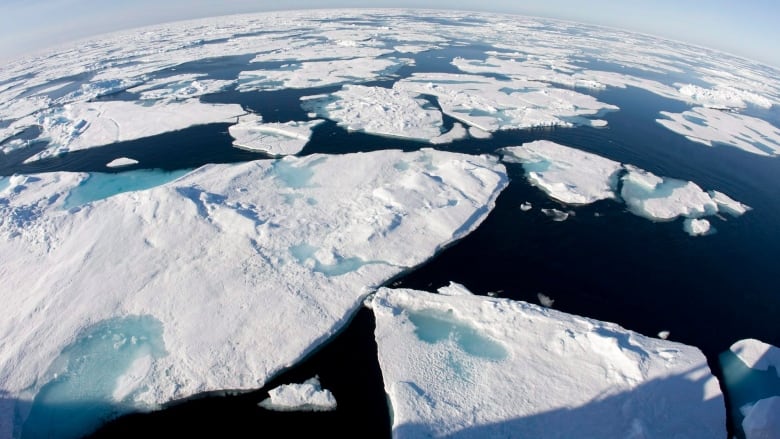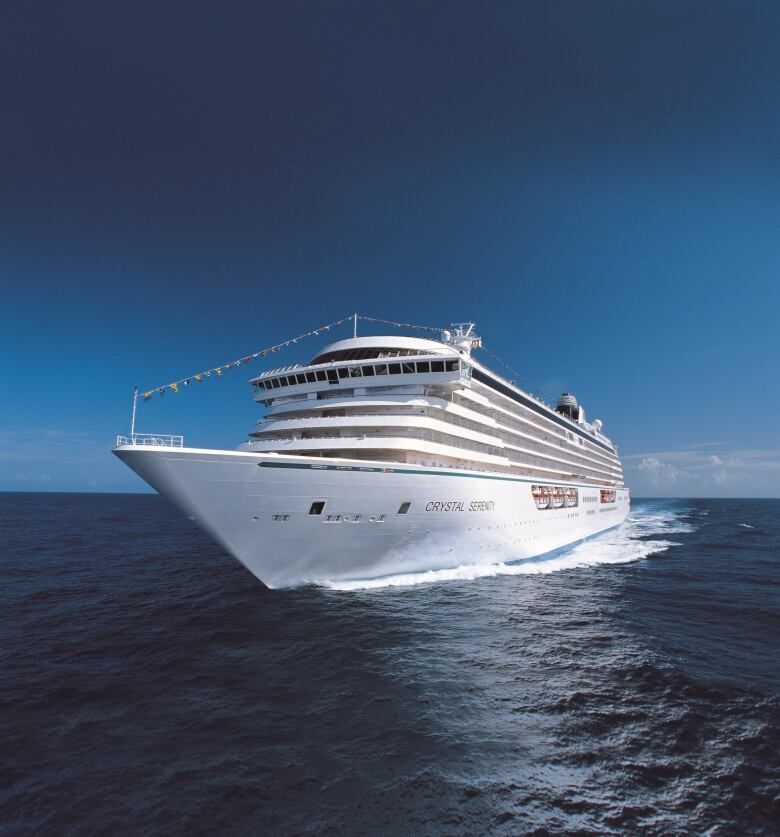Indigenous leaders head to London to lobby for stronger Arctic shipping regulations
'We just haven't got any infrastructure in place' in case of disaster, says Tagak Curley

The international regulator for marine shipping is meeting this week to continue discussions onArctic regulations but coastal Indigenous communities who will be most affected by the regulations don't have a seat at the table.
The International Maritime Organization, a United Nations specialized agency tasked with developing international shipping regulations, is holding its Marine Environment Protection Committee meeting Oct. 24-28 in London.
One of its tasks will be to review the Polar Code coming into force in January that will setglobal regulations for safety and environmental standards for ships operating in the Arctic and Antarctic.
"It seems to be a major gap that this international regulator isn't listening to or hearing community perspective on Arctic shipping," says Andrew Dumbrille, WWF-Canada's senior specialist for sustainable shipping.

The environmental group hopes to change that by bringing indigenous leaders to the doorstep of the International Maritime Organization.
WWF-Canada has invited Indigenous leaders from Russia, United States and Canada to hold a panel discussion in London as well as meet privately with the secretary general of the maritime organization and other delegates. Their intervention also includes a photo exhibit featuring images from the Arctic.
The Polar Codeintroduces tougher environmentalregulations for ships operating in polar waters, including a ban on the discharge of oil, oily water or noxious chemicals andrequirements to avoid Arctic marine mammals.
But there are alsoissues still not addressed by the code, such as the use of heavy fuels or spill responses.
"The code needs to be substantially strengthened in order for it to fully protect communities and marine ecosystems," saidDumbrille.
HansLennie,with theInuvikHunters and Trappers Committee and theInuvialuitGame Council,isone of the Indigenouspanellists at theWWF-Canadadiscussion.
"We need input, we need involvement and we need the communication of what goes on in our backyard," he said.

He saidclimate change is increasing the volume of shipping in the region which poses a threat to some Inuit communities reliant on marine mammals for food.
"That is our food for our table out there, that's why we're concerned," he said.
Tagak Curley, a former Nunavut MLA,agrees with Lennie and saidincreased Arctic shipping poses seriousrisks to marine wildlife and traditional hunting practices.
"This is a critical time to make a statement about Inuit rights and concerns with respect to food security," he said.
He added the Arctic lacks a plan to deal with a major shipping catastrophes.
"In the event that a major disaster were to happen whether it's a tourist ship or an oil spill wejust haven't got any infrastructure in place nor an energy organization capacity to respond."
Some measures that Curley would like to see adopted are international Arctic shipping corridors that mandate which routes can be sailed at what time of the year as well as regulations to protect marine wildlife.












_(720p).jpg)


 OFFICIAL HD MUSIC VIDEO.jpg)
.jpg)



























































































